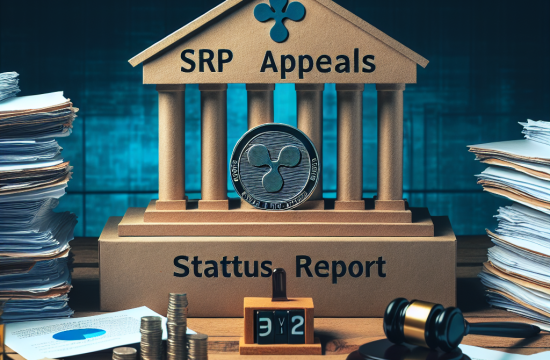Bitcoin might seem inevitable, but you can still take an action hand in pushing it forward.
This is an opinion editorial by Stephan Livera, host of the “Stephan Livera Podcast” and managing director of Swan Bitcoin International. It is an article adaptation of his speech for BitBlockBoom 2022 in Austin, Texas.
We’re living through an era of immense change and the money is broken. But on the bright side, we have this monetary technology, Bitcoin. On the downside, a lot of people don’t understand the point of Bitcoin because they’re trapped in fiat mindsets.

Consider this short GIF above. Are Bitcoiners like this man uselessly “pushing the train?” Is it all just happening regardless of what we do?
Is Bitcoin Inevitable?
Sometimes, the way people talk about it on Bitcoin Twitter is such that “Bitcoin is inevitable,” and this raises an interesting question. Is it? In what sense? Could we all just sit back and do nothing?
Not exactly. Bitcoin still needs things to sustain itself as a system: code review and maintenance, miners securing the system, users and HODLers giving it value. Perhaps in some aggregate sense, Bitcoin is not quite inevitable, but it is extremely likely to win based on certain qualities e.g., scarcity, neutrality, openness, etc. But whether Bitcoin is inevitable or not, it is very much reliant on real people who do the things that sustain the system.
So, What Can You Do?
You can drive forward adoption or technological advancement in and around Bitcoin. You don’t have to be a developer to contribute either. You can:
- Test, review and provide feedback on Bitcoin apps. Many have a community of developers and users in Telegram chats or Mattermost servers.
- Organize or contribute to your local Bitcoin meetup
- Invest in Bitcoin companies or work in them
- Do foreign language translation of influential Bitcoin content
- Fund Bitcoin development and review
- Get published in non-Bitcoin media to spread the word outside of Bitcoin circles
Normalizing Bitcoin
Don’t underestimate the power of normalizing bitcoin use among your friends. As a quick example, if you are out at dinner with friends/family and one person picks up the bill paying in fiat, you could offer to set them up on Muun, Breez or Phoenix wallet and repay them over Lightning. There’s a chance that over time this accumulation of sats helps trigger “bitcoin greed” in that person. In the best case, you may create a new Bitcoin HODLer/stacker.
Or, do you have friends and family overseas who you send money to? Don’t be afraid to use bitcoin to do it, and let them sell that bitcoin for cash in their local markets if they need it. There’s a good chance they can sell bitcoin for a slight premium in their local markets. Or they could use voucher sites such as Bitrefill.com to indirectly spend bitcoin on what they need.
Another idea is to find a local cafe or bar where you regularly host your Bitcoin meetup, and offer for it to take bitcoin payments. If you’re bringing it revenue in terms of paying customers, it will be more inclined to give you the time of day. Remember that Breez has a built-in POS mode that shopkeepers can easily install and use as an app on their phone or tablet. Or, of course for larger setups, they could use the likes of OpenNode or IBEX Lightning pay solutions. For non-custodial set ups, if they are tech savvy, you could set up BTCPay Server.
Being Upfront About Where We Are
We are just so, so early in terms of bitcoin use. I understand that I sound like a broken record in saying this, but it really is true in terms of how many users there are globally.
Especially if we’re talking about non-custodial use, the count of UTXOs as I write this in August 2022 is somewhere around 85 million. This is effectively an upper bound of non-custodial Bitcoin users. Of course, there will be some custodial users whose IOU-coins are represented by some platform, and there will be users who have many UTXOs, so the real count of unique Bitcoin on-chain users will be far less than 85 million in a world of almost 8 billion people.
 Source: Blockchain.com
Source: Blockchain.com
For this reason it can be difficult to get traction in bitcoin payments, as very few people globally even have bitcoin to make payments with. But this is also an opportunity to grow the scene and build the peer-to-peer economy of bitcoin users.
Technology Adoption And Public Attitudes
Coming back to that idea of Bitcoin’s inevitability, public attitudes to Bitcoin do matter for Bitcoiners. While Bitcoin the project may live on, individual people may suffer if they are singled out by the government. Additionally, the many people who are suffering high inflation or financial censorship today would continue to suffer if Bitcoin is not reasonably available.
One interesting historical parallel may be in the way that ideas changed history enabling the industrial revolution. In her “Bourgeois Equality” series, Deirdre McCloskey argues that it was ideas — and liberal notions of equality and dignity — that did this. Cultural attitudes toward merchants and commerce shifted, and this in turn enabled a massive rise in human prosperity and living standards over the past few hundred years. Big ideas can really move the needle and the Bitcoin community’s idea, digital sound money, is one of the biggest.
Or consider another analogy — if nuclear power technology is criminalized, then humanity is less able to gain the benefit of nuclear power. And remember that nuclear power requires an ecosystem of engineering talent to sustain it also. Likewise, Bitcoin requires humans to sustain it and advance it.
So, ideas and culture really do change the world, and you can contribute to Bitcoin without necessarily being a developer.
So let us all go forth and push the train!
This is a guest post by Stephan Livera. Opinions expressed are entirely their own and do not necessarily reflect those of BTC Inc or Bitcoin Magazine.







